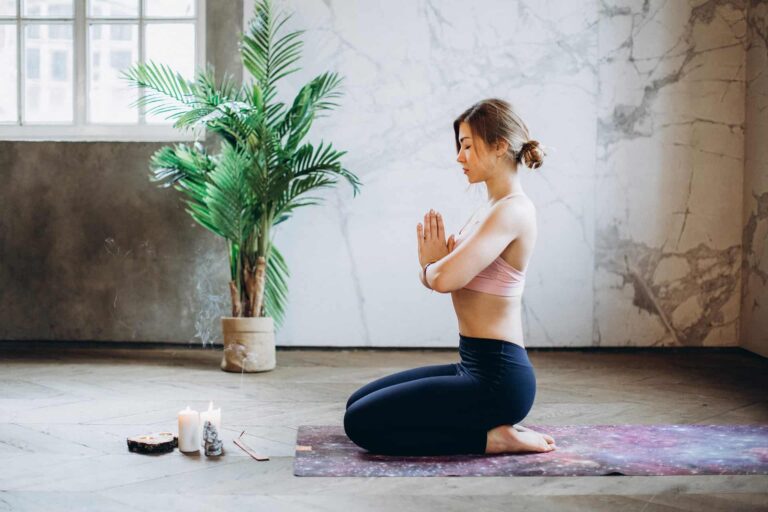How Do Lifestyle Changes Effects Acupuncture Treatments?
Acupuncture treatments can have a substantial impact on the efficacy and results of lifestyle modifications. A crucial component of traditional Chinese medicine, acupuncture stimulates particular body spots with tiny needle insertions in an attempt to bring the body’s equilibrium back. Acupuncture has the potential to generate greater benefits and boost overall wellness and health when paired with beneficial behavioural adjustments. This is a thorough examination of how therapies such as acupuncture can be impacted by lifestyle modifications. Acupuncture Ashford Kent uses traditional Chinese medical methods to provide comprehensive healing.
How Is Acupuncture Effective?
By gently stimulating our innate healing systems to produce a rhythmic movement that promotes pain relief and mental health, acupuncture’s complicated dance between energy pathways and neurological connections encourages inquisitive investigation of our bodies’ inner workings. Needles play this delicate role as gentle stimulators.

Goals
Traditional acupuncturists and other alternative healthcare practitioners are excellent resources for helping public health goals to change health-related behaviour. The objectives sought to ascertain the frequency and trends of change in lifestyle assistance provided by UK acupuncturists, evaluate grounded in-theory conjectures regarding the enablers and impediments of encouraging lifestyle changes, and investigate related traits and perspectives.
Breathing
Let’s start by discussing breathing. Our physical and emotional health can be greatly impacted by how deeply we breathe. Acupuncture places a strong emphasis on thoughtful, deep, slow breathing that is in tune with the changing of the seasons as well as our daily activities. For instance, in Bedford, Newfoundland, blowing in from the nose and out of the mouth keeps us cooler in summer and in the springtime. To stay warm in the autumn and winter, we need to switch to inhaling in and out via our noses only. These changes in the seasons can assist us in maintaining balance with our surroundings.
Dietary Adjustments
Nutrition: The key to general health is a well-balanced diet. Patient dietary modifications, such as cutting back on processed foods, increasing whole food intake, and sustaining proper hydration, can enhance the body’s reaction to acupuncture. Eating foods high in nutrients can improve the body’s capacity for healing and homeostasis, which may increase the effectiveness of treatments involving acupuncture.
Exercise
At this point, exercise is essential. Frequent exercise has been demonstrated to lower stress, elevate mood, and stave off a host of chronic illnesses. But we must modify our schedule by the seasons! Increase your participation in activities that encourage your development and growth in the spring and summer, such as strength or aerobic exercise. Concentrate more on balancing and flexibility activities, such as yoga, tai chi, or qigong, during the cooler temperatures of autumn and winter. Throughout the year, this seasonality strategy for movement assists to sustain our mental and physical health and increase our energy levels.
Handling Stress
Mindfulness Exercises: Stress can impede the body’s natural healing process and exacerbate specific medical issues. Acupuncture can work in concert with alterations in behaviour that involve activities that alleviate stress such as yoga, practice of deep breathing, stress meditation, or mindfulness techniques. Lower stress levels foster a more favourable environment in which the body reacts favourably to acupuncture treatments.
Blood Pressure
In people with mild hypertension, acupuncture may lower blood pressure and heart rate. Acupuncture could reduce patients’ elevated basal CSNA activation and raise vagal nerve activity among individuals with moderately elevated blood pressure, according to an HRV analysis.
Slumber
Another essential component is getting enough sleep and rest. We must adjust our routines to the seasonal variations in daylight. Because the hours of sunlight are longer in the warmer months of the year, we may naturally experience more energy and need a little less sleep. On the other hand, when the hours of darkness get longer in the autumn and winter, our bodies could want more sleep. The recommended times to go to bed and wake up are as follows: wake up at sunrise, go to bed at the end of daylight and meditate late into the-night restlessness. We can enhance our general well-being by paying attention to our bodies’ signals and modifying our sleep routines accordingly.
Drinking Alcohol and Smoking
Minimizing Dangerous Habits: Acupuncture treatments can benefit from lifestyle changes such as giving up alcohol or smoking. Smoking and binge drinking can throw off the body’s equilibrium and make acupuncturists less effective. Reducing or getting rid of these behaviours can improve the conditions in which acupuncture works more effectively.
Getting in Touch with Nature
At the end of the three are a plethora of health advantages to spending time outside and taking in the scenery, ranging from stress reduction to mood and attention enhancement. Admire the blooming flowers and the new development in the springtime. Savour the comforting warmth from the sun and the vividness of the surroundings during the summer. Enjoy the fresh air and the changing hues of the leaves as autumn approaches. Finding beauty in the silence and the landscape blanketed with snow during the winter. We may develop a sense of wonder and thankfulness that will improve our general state of mind by spending time in nature all year round.
Final Words:
In conclusion, by fostering a more conducive atmosphere for the body to achieve healing and equilibrium, lifestyle changes can significantly affect how successful treatments using acupuncture are.






